
A Bangladeshi military soldier secures his position near the presidential palace in Dhaka. Bangladesh's president buckled to massive opposition and international pressure by quitting his role as head of an interim government and promising "free and fair" elections for the country.
Bangladesh's president buckled to massive opposition and international pressure by quitting his role as head of an interim government and agreeing to postpone disputed national elections.
.
President Iajuddin Ahmed's announcement came hours after he declared a state of emergency in a bid to tackle worsening violence generated by opposition allegations that the polls, scheduled for January 22, would be rigged.
.
New elections at a later date, the president promised in his dramatic U-turn, would be "free and fair".
.
"I have decided to resign as head of the caretaker government, to pave the way for an acceptable election in which all political parties can participate," the president said in a televised speech to the nation.
.
"The new caretaker government will hold dialogue with all the parties, and prepare for new elections within the shortest possible time," he said.
.
His temporary replacement as head of the interim government, responsible for organising the vote, is Supreme Court judge Fazlul Haq -- widely seen as being politically independent.
.
Ahmed will continue to serve as figurehead president.
.
The opposition, led by the left-leaning Awami League, said the announcement was a "victory for the people".
.
They had alleged the planned election would be biased in favour of the outgoing Bangladesh Nationalist Party (BNP), and have demanded a complete overhaul of an electoral list said to contain 14 million ghost voters.
.
"By admitting that the voter list had errors, and quitting as head of the interim government, he has in fact accepted our main demands," opposition spokesman Abdul Jalil told AFP.
.
The opposition had also promised a boycott and a series of non-stop protests, blockades and strikes, meaning the politically-polarised nation was facing -- as the president put it -- a "grave situation".
.
Ahmed said the pre-poll unrest and the loss of dozens of lives, meant it had become a "necessity to declare an emergency", involving a ban on all political activities and a curfew from 11:00 pm to 5:00 am.
.
"It is the expectation of the people to have a free and fair elections... that are acceptable to all parties, at home and abroad," the embattled president said, just a day after he had called 60,000 troops out on the streets.
.
Analysts said the state of emergency and announcement was likely to restore immediate calm to the country, as weeks of protests give way to intense negotiations between the rival parties.
.
Ahmed's decision came after the United Nations said it had suspended "all technical support to the electoral process" and warned it was concerned for the future of the country's democracy.
.
The European Union said it had suspended its election observation mission to Bangladesh, one of the poorest, most corrupt and densely-populated nations on earth.
.
Britain, the former colonial power, also condemned plans to hold elections regardless of the opposition boycott.
.
And crucially, the UN threatened to strip the Bangladeshi army of its prestigious and lucrative international 'blue helmet' peacekeeping duties if it backed elections with no opposition participation.
.
UN peacekeeping missions and the income they generate are highly prized in the Bangladeshi armed forces, and such a warning would have subjected the president to serious pressure to delay the polls, analysts said.
.
The Muslim-dominated but secular country of 144 million, formerly known as East Pakistan, has a history of instability, coups and counter coups since winning independence from Pakistan in 1971.
.
Although democracy was restored in 1991, the Awami League and the BNP have each regularly boycotted parliament and staged national strikes as a negotiating tactic when in opposition.
.
The crisis has also badly damaged the country's economy, with exports including from the crucial textile sector held up at Chittagong, home to the country's largest port. — AFP
Bangladesh's president buckled to massive opposition and international pressure by quitting his role as head of an interim government and agreeing to postpone disputed national elections.
.
President Iajuddin Ahmed's announcement came hours after he declared a state of emergency in a bid to tackle worsening violence generated by opposition allegations that the polls, scheduled for January 22, would be rigged.
.
New elections at a later date, the president promised in his dramatic U-turn, would be "free and fair".
.
"I have decided to resign as head of the caretaker government, to pave the way for an acceptable election in which all political parties can participate," the president said in a televised speech to the nation.
.
"The new caretaker government will hold dialogue with all the parties, and prepare for new elections within the shortest possible time," he said.
.
His temporary replacement as head of the interim government, responsible for organising the vote, is Supreme Court judge Fazlul Haq -- widely seen as being politically independent.
.
Ahmed will continue to serve as figurehead president.
.
The opposition, led by the left-leaning Awami League, said the announcement was a "victory for the people".
.
They had alleged the planned election would be biased in favour of the outgoing Bangladesh Nationalist Party (BNP), and have demanded a complete overhaul of an electoral list said to contain 14 million ghost voters.
.
"By admitting that the voter list had errors, and quitting as head of the interim government, he has in fact accepted our main demands," opposition spokesman Abdul Jalil told AFP.
.
The opposition had also promised a boycott and a series of non-stop protests, blockades and strikes, meaning the politically-polarised nation was facing -- as the president put it -- a "grave situation".
.
Ahmed said the pre-poll unrest and the loss of dozens of lives, meant it had become a "necessity to declare an emergency", involving a ban on all political activities and a curfew from 11:00 pm to 5:00 am.
.
"It is the expectation of the people to have a free and fair elections... that are acceptable to all parties, at home and abroad," the embattled president said, just a day after he had called 60,000 troops out on the streets.
.
Analysts said the state of emergency and announcement was likely to restore immediate calm to the country, as weeks of protests give way to intense negotiations between the rival parties.
.
Ahmed's decision came after the United Nations said it had suspended "all technical support to the electoral process" and warned it was concerned for the future of the country's democracy.
.
The European Union said it had suspended its election observation mission to Bangladesh, one of the poorest, most corrupt and densely-populated nations on earth.
.
Britain, the former colonial power, also condemned plans to hold elections regardless of the opposition boycott.
.
And crucially, the UN threatened to strip the Bangladeshi army of its prestigious and lucrative international 'blue helmet' peacekeeping duties if it backed elections with no opposition participation.
.
UN peacekeeping missions and the income they generate are highly prized in the Bangladeshi armed forces, and such a warning would have subjected the president to serious pressure to delay the polls, analysts said.
.
The Muslim-dominated but secular country of 144 million, formerly known as East Pakistan, has a history of instability, coups and counter coups since winning independence from Pakistan in 1971.
.
Although democracy was restored in 1991, the Awami League and the BNP have each regularly boycotted parliament and staged national strikes as a negotiating tactic when in opposition.
.
The crisis has also badly damaged the country's economy, with exports including from the crucial textile sector held up at Chittagong, home to the country's largest port. — AFP
.
President Iajuddin Ahmed's announcement came hours after he declared a state of emergency in a bid to tackle worsening violence generated by opposition allegations that the polls, scheduled for January 22, would be rigged.
.
New elections at a later date, the president promised in his dramatic U-turn, would be "free and fair".
.
"I have decided to resign as head of the caretaker government, to pave the way for an acceptable election in which all political parties can participate," the president said in a televised speech to the nation.
.
"The new caretaker government will hold dialogue with all the parties, and prepare for new elections within the shortest possible time," he said.
.
His temporary replacement as head of the interim government, responsible for organising the vote, is Supreme Court judge Fazlul Haq -- widely seen as being politically independent.
.
Ahmed will continue to serve as figurehead president.
.
The opposition, led by the left-leaning Awami League, said the announcement was a "victory for the people".
.
They had alleged the planned election would be biased in favour of the outgoing Bangladesh Nationalist Party (BNP), and have demanded a complete overhaul of an electoral list said to contain 14 million ghost voters.
.
"By admitting that the voter list had errors, and quitting as head of the interim government, he has in fact accepted our main demands," opposition spokesman Abdul Jalil told AFP.
.
The opposition had also promised a boycott and a series of non-stop protests, blockades and strikes, meaning the politically-polarised nation was facing -- as the president put it -- a "grave situation".
.
Ahmed said the pre-poll unrest and the loss of dozens of lives, meant it had become a "necessity to declare an emergency", involving a ban on all political activities and a curfew from 11:00 pm to 5:00 am.
.
"It is the expectation of the people to have a free and fair elections... that are acceptable to all parties, at home and abroad," the embattled president said, just a day after he had called 60,000 troops out on the streets.
.
Analysts said the state of emergency and announcement was likely to restore immediate calm to the country, as weeks of protests give way to intense negotiations between the rival parties.
.
Ahmed's decision came after the United Nations said it had suspended "all technical support to the electoral process" and warned it was concerned for the future of the country's democracy.
.
The European Union said it had suspended its election observation mission to Bangladesh, one of the poorest, most corrupt and densely-populated nations on earth.
.
Britain, the former colonial power, also condemned plans to hold elections regardless of the opposition boycott.
.
And crucially, the UN threatened to strip the Bangladeshi army of its prestigious and lucrative international 'blue helmet' peacekeeping duties if it backed elections with no opposition participation.
.
UN peacekeeping missions and the income they generate are highly prized in the Bangladeshi armed forces, and such a warning would have subjected the president to serious pressure to delay the polls, analysts said.
.
The Muslim-dominated but secular country of 144 million, formerly known as East Pakistan, has a history of instability, coups and counter coups since winning independence from Pakistan in 1971.
.
Although democracy was restored in 1991, the Awami League and the BNP have each regularly boycotted parliament and staged national strikes as a negotiating tactic when in opposition.
.
The crisis has also badly damaged the country's economy, with exports including from the crucial textile sector held up at Chittagong, home to the country's largest port. — AFP
Bangladesh's president buckled to massive opposition and international pressure by quitting his role as head of an interim government and agreeing to postpone disputed national elections.
.
President Iajuddin Ahmed's announcement came hours after he declared a state of emergency in a bid to tackle worsening violence generated by opposition allegations that the polls, scheduled for January 22, would be rigged.
.
New elections at a later date, the president promised in his dramatic U-turn, would be "free and fair".
.
"I have decided to resign as head of the caretaker government, to pave the way for an acceptable election in which all political parties can participate," the president said in a televised speech to the nation.
.
"The new caretaker government will hold dialogue with all the parties, and prepare for new elections within the shortest possible time," he said.
.
His temporary replacement as head of the interim government, responsible for organising the vote, is Supreme Court judge Fazlul Haq -- widely seen as being politically independent.
.
Ahmed will continue to serve as figurehead president.
.
The opposition, led by the left-leaning Awami League, said the announcement was a "victory for the people".
.
They had alleged the planned election would be biased in favour of the outgoing Bangladesh Nationalist Party (BNP), and have demanded a complete overhaul of an electoral list said to contain 14 million ghost voters.
.
"By admitting that the voter list had errors, and quitting as head of the interim government, he has in fact accepted our main demands," opposition spokesman Abdul Jalil told AFP.
.
The opposition had also promised a boycott and a series of non-stop protests, blockades and strikes, meaning the politically-polarised nation was facing -- as the president put it -- a "grave situation".
.
Ahmed said the pre-poll unrest and the loss of dozens of lives, meant it had become a "necessity to declare an emergency", involving a ban on all political activities and a curfew from 11:00 pm to 5:00 am.
.
"It is the expectation of the people to have a free and fair elections... that are acceptable to all parties, at home and abroad," the embattled president said, just a day after he had called 60,000 troops out on the streets.
.
Analysts said the state of emergency and announcement was likely to restore immediate calm to the country, as weeks of protests give way to intense negotiations between the rival parties.
.
Ahmed's decision came after the United Nations said it had suspended "all technical support to the electoral process" and warned it was concerned for the future of the country's democracy.
.
The European Union said it had suspended its election observation mission to Bangladesh, one of the poorest, most corrupt and densely-populated nations on earth.
.
Britain, the former colonial power, also condemned plans to hold elections regardless of the opposition boycott.
.
And crucially, the UN threatened to strip the Bangladeshi army of its prestigious and lucrative international 'blue helmet' peacekeeping duties if it backed elections with no opposition participation.
.
UN peacekeeping missions and the income they generate are highly prized in the Bangladeshi armed forces, and such a warning would have subjected the president to serious pressure to delay the polls, analysts said.
.
The Muslim-dominated but secular country of 144 million, formerly known as East Pakistan, has a history of instability, coups and counter coups since winning independence from Pakistan in 1971.
.
Although democracy was restored in 1991, the Awami League and the BNP have each regularly boycotted parliament and staged national strikes as a negotiating tactic when in opposition.
.
The crisis has also badly damaged the country's economy, with exports including from the crucial textile sector held up at Chittagong, home to the country's largest port. — AFP




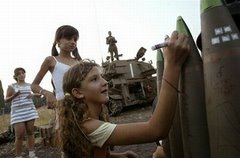
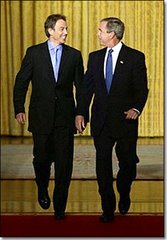

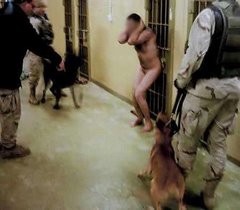
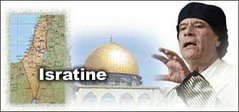

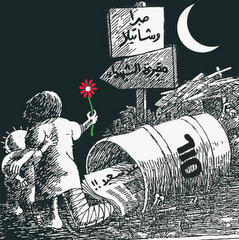
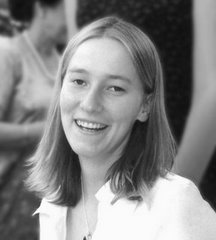
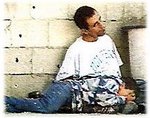
No comments:
Post a Comment